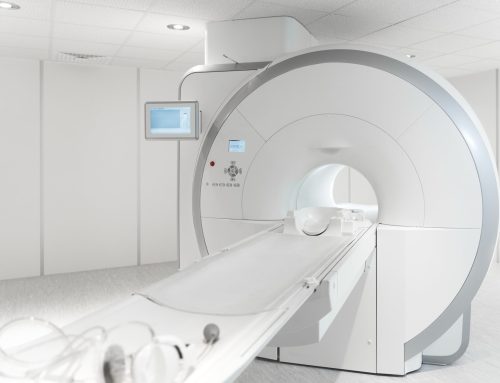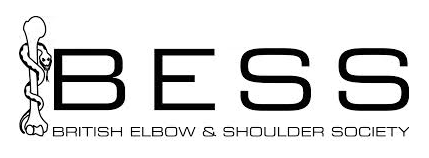Finding out you have a shoulder problem that requires surgery can be scary. The most important decision you must make is choosing the right shoulder surgeon for you. Let’s face it, if someone is going to stick a knife inside your body, you want to be sure they are the right person for the job.
How on earth do you make that decision?
With all the information out there, it can be confusing and daunting.
Most people start the search by typing into ‘Dr Google’, “Who is the best shoulder surgeon near me?”. Whilst your search may bring up a list of names, the difficulty with this approach is that you do not know who wrote the list, or how the list was compiled. Can you be sure that it is truly an unbiased view? Furthermore, a random search often brings up several names, and it isn’t easy to decide based purely on a google search.
In this article, I’ll give you some points you may want to consider in finding the best shoulder surgeon.
- Ask your friends, family, neighbours, and co-workers for recommendations.
When selecting a shoulder pain specialist, asking those in your social circle for recommendations is a good place to start. Ask people whom you trust. Find out if they have first-hand experience with the surgeon. Remember to ask them how they know the surgeon. Were they a patient of the surgeon? Are they a colleague? Or are they friends with the surgeon? Previous patients are often the best people to tell you exactly what their experience was like.
Research the Local Hospitals
Most hospitals will have a list of surgeons on their websites. They will usually have a short biography and the conditions they treat. All hospitals must ensure that the surgeon is registered with the General Medical Council and has appropriate medical indemnity. They will also check that the surgeon is up to date with mandatory training, has been compliant with an annual appraisal, and has been revalidated every five years to have a medical license to practice.
Check out the Orthopaedic Surgeon’s website.
Many surgeons these days have a personal website. The website’s design should give an insight into their skills and personality. On my website, I recorded several videos so that you get a feel for how I look and sound and my general approach to treating patients. You will also get an idea of the types of conditions I treat, the surgical procedures I do and what to expect if you come and see me as a patient.
It is important to check the surgeon’s qualifications and see which professional organisations they belong to. Look at the range of procedures that surgeon does. For example, a surgeon specialising in one joint, such as the shoulder joint, is likelier to have more shoulder experience and expertise than somebody who treats several joints.
Other things to consider are whether the surgeon has academic interests or qualifications. See if they have written or presented articles in medical journals or international meetings. Do they actively take part in educational activities? Do they regularly attend meetings in their speciality? Whilst academic qualifications do not necessarily translate into better technical skills, clinicians who train other surgeons and take part in multi-disciplinary meetings are more likely to keep up to date with the latest advances in the specialty.
Read Patient reviews
There are several review sites for doctors, such as Doctify or Top Doctors. These sites will list several clinicians under each speciality. There are verified independent reviews from patients, indicating how patients experienced that surgeon’s care. Looking at the reviews of several patients will help you decide which aspects of care are most important to you. You can get a good grasp on which surgeons are most qualified.
List of Questions to Ask Your orthopaedic Shoulder Surgeon
Before you see your surgeon, it is helpful to write exactly what you want from the consultation. Some patients come to see me because they have had pain that is not affecting them too much, but they want to know what is wrong with them. These people are looking for a diagnosis and some advice. Other patients know that they need or want surgery and are coming to discuss the specifics of the procedure. Write your questions before your consultation, as it is easy to forget things during the appointment.
Here is a list of questions you may want to ask your surgeon.
- Why is my shoulder painful?
- Is there a structural cause for my pain?
- Is there something I can do to improve my pain?
- Is this likely to get better or worse with time?
- Is there anything that I can do which will make my shoulder problem worse?
- Will injections make my pain better?
- Should I have a course of physiotherapy?
- If I need surgery, when should I get it done?
- What happens if I don’t do surgery?
- What are the alternatives to surgery?
- What happens on the day of surgery?
- What help will I need or get after surgery?
- Will I need to wear a sling?
- How long will I need to be in a sling?
- How painful will it be after surgery?
- What precautions can I put into place to help with the pain following surgery?
- What is the total recovery time after surgery?
- What complications could occur after surgery?
- What happens if there is a complication?
- What are the best-case and worst-case scenarios?
Your surgeon should be able to answer all these questions. If they do not answer the question to your satisfaction or if you need help understanding the answer, try asking again. They may not have understood your question properly. If you do not feel confident that they have answered your questions, or if you feel they are irritated with your questions, they may not be the right person for you.
Who is the best shoulder surgeon in London?
This is the question that most people will ask if they have a shoulder problem (swap ‘London’ for your local town or city). Despite what your surgeon may like to think, the honest answer is that there is not a single ‘best’ surgeon. There are many factors and skills to being a good surgeon, and technical skill is only one aspect of the job. Different surgeons will have strengths in different areas. You are looking for the whole package.
Being a good listener, and having empathy, patience, and kindness are essential qualities. A good team, that will support you through your treatment is essential. Other factors, such as does the surgeon work in a clean and efficient hospital with good transport connections and a nearby car park, can make a big difference to your overall treatment.
Most surgeons trained in the UK have been through a rigorous training scheme and are regularly assessed. Each year a surgeon must attend an appraisal meeting with an independent evaluator to reflect and be questioned about their practice. This means that most surgeons should be competent in treating common conditions and performing common procedures. Then the choice comes down to how you feel in the consultation.
If you have a complex problem or need revision surgery, you may need specialised care in a tertiary referral centre. In this case, ask your GP or family doctor and research the facilities that offer this service.
Summary
Choosing the right shoulder surgeon for you is a very important decision.
Here is a checklist for you to work through
- Ask your friends for recommendations.
- Research the surgeons in your area.
- Check their credentials and qualifications.
- Look at their experience and outcomes.
- Look at which hospitals they work in.
- Check the follow-up care they offer you.
Once you have been through this list and have had your appointment with the surgeon, ask yourself a simple question ‘Do I feel safe with this person?’ Trust your instinct. If the answer is yes, this is the right person for you. If there is any doubt in your mind, get another opinion. Doing this is far better than going ahead, having a complication, and wishing you had not had surgery.
If the surgeon makes you feel safe, listens to you, and takes the time to address all your concerns and fears, you will most likely have confidence in their care and have a better outcome.
If you have a shoulder problem and would like to book an appointment with me, contact me on +44 (0) 203 195 2459 or send an enquiry.
Ms Susan Alexander is a Consultant Orthopaedic Surgeon and President of the Independent Doctors Federation.
She specialises in all shoulder conditions, including frozen shoulder, rotator cuff tears, dislocations and arthritis. Based in London, she practises at Fortius Clinic and King Edward VII’s Hospital. Ms Alexander is highly experienced in minimally invasive (keyhole) shoulder surgery and is known for her meticulous, patient-centred and holistic approach.
She focuses on accurate diagnosis, bespoke treatment planning, and ongoing support throughout recovery. Learn more about Ms Susan Alexander here.











